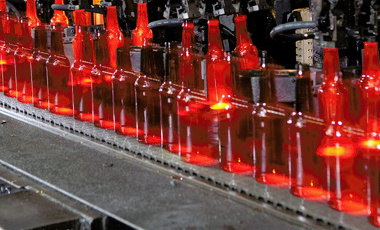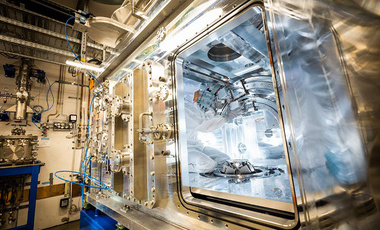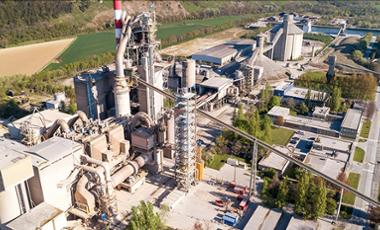Recovering 100% of carbon-fibre-reinforced polymer
A closed-loop path for synthesising carbon-fibre-reinforced polymer and recovering all its starting materials has been designed at the US Oak Ridge National Laboratory.

A closed-loop path for synthesising carbon-fibre-reinforced polymer and recovering all its starting materials has been designed at the US Oak Ridge National Laboratory.

The Advanced Carbons Council (ACC) has launched as a global trade association to support the production, adoption and use of engineered advanced carbons.

Tabitha Binding discusses the importance of timber in tackling climate change by embracing natural carbon capture.

BRE Principal Consultant and Cementitious Materials Group member, Andrew Dunster FIMMM, discusses some of the alternatives to pure Portland cements as well as research, development and testing of low-carbon cements and concretes.

More than 80 civil society organisations have rejected the use of carbon offsets to meet corporate climate targets.

A technical lecture from the South Wales Materials Society

A CPD Webinar from the South Wales Materials Society

This new battery type could power devices for thousands of years, says the team from the UKAEA and University of Bristol, UK.

Ardagh Glass Packaging-Europe has completed an industrial fuel switching trial to produce glass packaging using biofuel.

This comes as North Sea oil and gas industry cuts greenhouse gas emissions by more than a fifth since 2018.

A high-performance laser (DiPOLE 100-X) developed in the UK enabled the technique, which may support fission.

The UK’s first-ever carbon storage licensing round could make a significant contribution towards the aim of storing 20-30Mt of CO2 by 2030.

The National Composites Centre (NCC), UK, is launching a three-year programme to scale up the industrial recycling of continuous carbon fibre in the UK.

A pilot project in northern Germany is demonstrating how road construction can become part of the climate transition.

Global warming will cause the world's soil to release carbon, new research shows.

A study led by the University of Oxford, UK, reportedly overturns the view that natural rock weathering acts as a carbon dioxide sink removing it from the atmosphere.

Tata Chemicals Europe has opened the UK's first industrial scale carbon capture plant.

Transistors fabricated entirely from carbon wires could increase our computers’ processing speeds and reduce their power consumption.

How can carbon capture and storage contribute to net-zero? Shardell Joseph reports from an event that explored industrial and government strategies to develop the UK's market.

A fabrication method for gas membranes is set to overcome the bottlenecks in selectivity and permeability to absorb carbon emissions in industrial settings. Shardell Joseph finds out how.